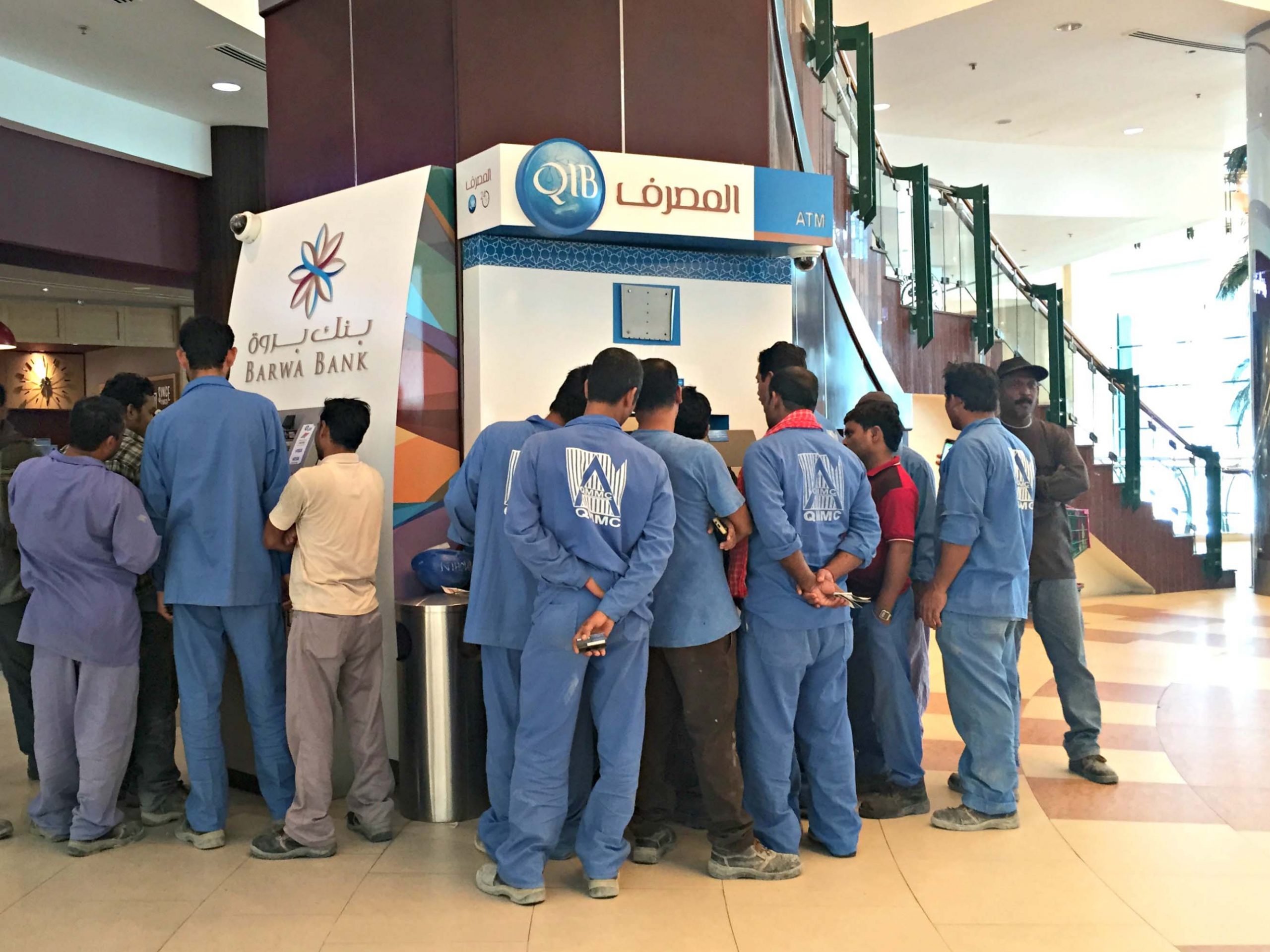
Banks and government officials have enrolled an additional 200,000 expats over nearly two months in a compulsory program requiring Qatar employers to pay their workers electronically, the country’s labor ministry has reportedly said.
Speaking to the Qatar Chamber yesterday, Issa bin Saad Al Jafali Al Nuaimi – the Minister of Administrative Development, Labor and Social Affairs – said yesterday that approximately 1.5 million residents are now covered by the Wage Protection System (WPS), according to the Gulf Times.
That’s up from 1.3 million reported in early May and, according to the International Labour Organization (ILO), 914,176 in January.
However, that means that some 200,000 residents of 1.7 million eligible individuals are still not covered by the WPS more than seven months after the law made it mandatory for employers to use the program.

It’s not clear why so many people still fall outside the WPS, which is aimed at reducing cases of late and non-payment of wages, or if any companies have been sanctioned under penalties contained in the law.
Earlier this year, Qatar’s prime minister told the ILO that the country’s WPS was “enforced very strictly,” according to a report by the UN agency.
The ILO delegation said it was told that a Wage Protection Unit had been set up in the Labor Inspection Department and was monitoring the program’s implementation.
When violations are found, the minister has the authority to refuse to grant the offending company additional work permits.
‘Technical issues’
Human rights and labor advocates have frequently said that late or unpaid wages are among the most common complaints among low-income workers in Qatar.

The WPS program is meant to address this problem by requiring companies to pay their employees electronically within seven days.
However, it only applies to individuals covered by the country’s labor law. This means domestic employees, agricultural laborers and several other categories of workers are excluded.
After months of debate, the WPS program was signed into law by the Emir in February 2015 but did not come into effect until November in order to give officials times to prepare.
Despite the advance warning, there was still a last-minute scramble as hundreds of blue-collar workers lined up outside banks for hours to open an account ahead of the deadline.

In the following weeks, several companies – including a subcontractor on the Msheireb Downtown Doha redevelopment – blamed glitches with the WPS for causing delays in salary payments.
More recently, the manager of a hypermarket chain who declined to speak on the record told Doha News last month that “technical issues” with the WPS were causing delays in salary payments.
Reaction
It’s also not clear what impact, if any, the WPS has made on reducing incidents of unpaid salaries.
One of the primary functions of the WPS is to create an electronic record that shows if and when an employee has been paid.
It’s not known if any WPS records have yet been used to resolve any legal disputes regarding unpaid wages, or if authorities are pro-actively monitoring transactions to detect when a salary has gone unpaid.

For its part, the ILO said it considered Qatar’s WPS “to be a positive measure which, if implemented effectively, could contribute to address the recurring issue of the non-payment of wages.”
At the same time, the ILO report stated, many smaller subcontractors and labor supply companies had not yet signed up.
The reaction among workers themselves has been mixed.
“The new system has reduced our stress. Now, I need not bother about how to keep the money safe. My money will be safe in my bank account,” one construction laborer told the Qatar Tribune late last year.
Others have reacted with skepticism.
Thoughts?







